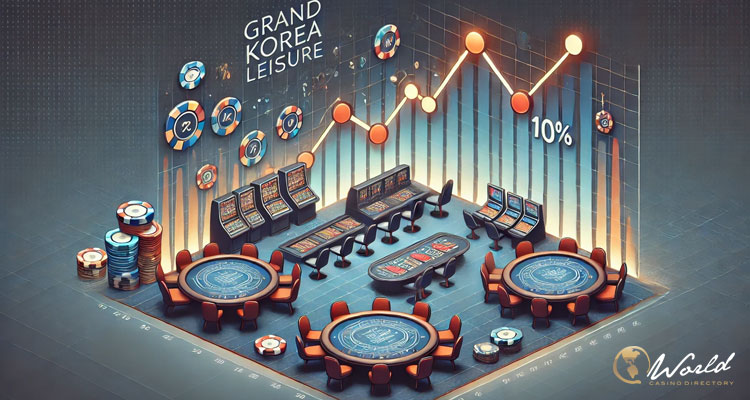Grand Korea Leisure Co., Ltd. (GKL), a leading operator of foreigner-only casinos in South Korea, experienced its second month of revenue decline in October 2024. The company, which manages three casinos under the Seven Luck brand in Seoul and Busan, reported an 11% decrease in monthly casino revenue to KRW30.54 billion (US$22.2 million). Despite the sequential drop, October’s figures were up by 6.6% compared to the same period in 2023.
Breaking down the revenue sources, GKL saw a 12% month-over-month decrease in table games, generating KRW27.8 billion (US$20.2 million), while slot machine sales rose slightly by 0.7% to KRW2.73 billion (US$1.98 million). October’s overall drop, or the total amount exchanged by players for chips, showed a 12.7% increase sequentially to KRW331.1 billion (US$241 million). Year-to-date, GKL’s casino revenue reached KRW317.93 billion (US$231 million), reflecting a 5% decline from the same period last year, according to Inside Asian Gaming.
Revenue by Location and VIP Contribution
The three Seven Luck casinos, located in the popular areas of Seoul’s Gangnam district, Seoul’s Dragon City, and Busan’s Lotte Hotel, continued to serve as the company’s primary revenue generators. Among them, the Seoul Gangnam Casino contributed the most to GKL’s year-to-date revenue, accounting for nearly KRW141.48 billion from January through October. The Dragon City location in Seoul followed closely, generating KRW129.43 billion, while the Busan Lotte Casino contributed KRW47.02 billion.
VIP players played a significant role in GKL’s revenue, GGRAsia points out, with nearly 70.3% of the total drop—equating to KRW2.17 trillion (US$1.57 billion)—attributed to this high-stakes category. The overall drop for the year, nearing KRW3.08 trillion (US$2.24 billion), increased by 12.1% compared to the same period in the previous year, highlighting a steady interest from high-spending clientele despite fluctuations in monthly revenues.
Yearly Performance and Ongoing Challenges
Although GKL’s monthly revenue has faced recent setbacks, the company’s year-over-year results show moderate resilience, with October’s revenue exceeding last year’s by a modest 6.6%. Machine game sales in October increased slightly from September but saw a year-on-year decline of 12.1%. This combination of month-to-month volatility and annual growth suggests that GKL is navigating a challenging market, balancing fluctuating visitor numbers with sustained demand from VIP players.
Grand Korea Leisure operates as a subsidiary of the Korea Tourism Organization under the auspices of South Korea’s Ministry of Culture, Sports, and Tourism and remains focused on drawing international tourists to its venues. By offering exclusive gaming experiences tailored to foreign visitors, GKL differentiates itself in a market with stringent regulations on local gambling. As South Korea’s economy works to recover from pandemic-induced downturns, GKL’s reliance on international tourists and high-stakes players remains both a strategic strength and a vulnerability.



